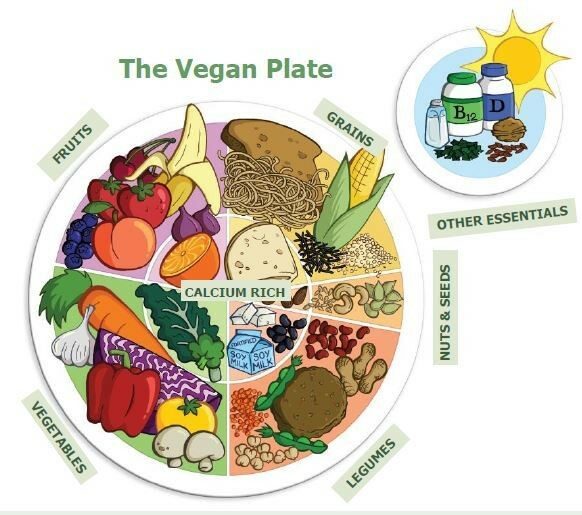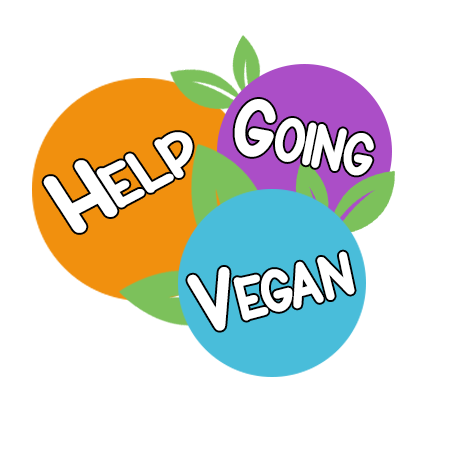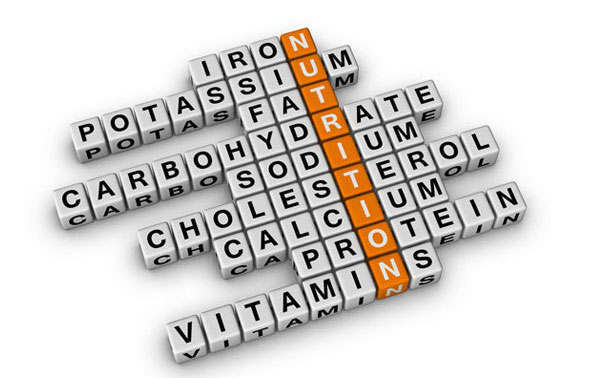Whilst this page is under construction please give Nelcy’s page a click and most of what you need is on there.
Most of the major world dietetic associations and many health organisations, including the British NHS, the American Academy of Nutrition and Dietetics, agree that a 100% plant based diet fulfills all our nutritional needs, at all stages of life. In fact, one of the benefits of being an ethical vegan is the happy co-incidence that a plant based diet can help prevent many illnesses that cause suffering and premature death in the Western World.
The key to a healthy diet is good planning. This is not unique to a plant based diet. Familiarise yourself with nutritional guidelines to ensure that you are eating in such a way that you get sufficient energy, protein, iron, Vitamin B12, Vitamin D2, iodine, and calcium. There are excellent sources of reliable information on the internet. Some of them are mentioned in the resources section of this website. Do not underestimate the value of consuming fortified foods. Food fortification is the practice of adding essential vitamins and minerals (e.g. iron, vitamin A, folic acid, iodine) to staple foods to improve their nutritional content. In an omnivorous world fortification is regarded as a a safe, effective way to improve public health that has been used around the world since the 1920s. In a vegan world, staple foods will simply be fortified with the nutrients that are of specific relevance to those who only eat plants: calcium, selenium, zinc, iodine, Vitamin B12, Vitamin K, Vitamin D and possibly Omega 3 Fatty Acids.
If you need extra assurance about how a diet of plants can meet your nutritional requirements buy one of the recommended books on Vegan Dietetics & Plant Nutrition; join a vegan education class, or consult a Plant Based Registered Dietitian or nutritionist.
Download The International Vegan Association Leaflet Demystifying Vegan Nutrition
There are some nutritionists who can advise on Plant Based Nutrition.
Sandra Hood is a Registered Dietitian, BDA Member and BDA Public Health Nutrition Specialist Group Committee Member. She specialises in Plant Nutrition for Parents and Children.
There is now a very rich source of information in the UK from Plant Based Health Professionals UK.
If you have health concerns you can also consult your General Practitioner but it is advisable to also consult someone who has expertise in plant nutrition.
There is an excellent Meal Planner in the 21 Day Vegan Kickstart available from Physicians Committee for Responsible Medicine. Although there may be some cultural differences between American and European food and diet, you can easily adapt it to suit your lifestyle. (Please note that all references to ‘vegetarian’ diets on this website mean 100% vegan plant diets.)

Protein:
Protein sources include legumes, nuts, seeds, and grains. Soy products, such as Tofu, Seitan and Tempeh, as well as meat analogues, are useful sources of protein.
Vitamin B12:
Is not found in plant foods. However, that is not a justification for eating animals. Neither plants nor animals synthesize this vitamin. It is made by bacteria. B12 is a very important nutrient and deficiency can have detrimental effects on our health. A reliable source of Vitamin B12 is recommended for everyone over the age of 50, including those who are not vegan. Some studies show that a significant percentage of the general population (39%) have insufficient B12 levels (Tucker et al, 2000: American Society for Clinical Nutrition). So it is not only something vegans need to be aware of.
It is recommended that vegans take a B12 supplement and/or include B12 fortified foods such as plant milk and nutritional yeast. B12 supplements suitable for vegans are cheap and easy to find. In fact, most of the B12 supplements produced are given to animals used in animal agriculture who are also deficient because of the environment in which they are reared. Even if they live outdoors and eat grass, heavy use of pesticides and the antibiotics that are prescribed routinely to them kill B12-producing bacteria in the soil and in their intestines.
It is easy to obtain if you take a daily Vitamin & Mineral Supplement such as Veg Vit or Veg1, or a daily or weekly Vitamin B12 supplement. Many vegans include Vitamin B12 fortified foods in their diet such as plant milk or yoghurt, yeast extract, breakfast cereal, or Nutritional Yeast.
Vitamin D:
We get Vitamin D when our skin is exposed to the sun. In Northern European countries we don’t get sufficient sun so it is important for everyone, not only vegans, to ensure adequate intake of Vitamin D. Vitamin D2 fortified foods such as fortified plant milks, vegan spreads and breakfast cereal are good sources. Vitamin D3 is not suitable for vegans as it is obtained from lanolin in sheep. However, there is now a vegan source of D3 from lichen. You can use supplements to ensure an adequate intake such as VEG1 or Vitashine.
Calcium:
World Health Organization recommended calcium intake is 1,000 milligrams per day for adults (1200 for women over 50 and men over 70).
Calcium is absorbed at different rates from different foods.
One of the best sources is leafy green vegetables such as kale, cabbage, and broccoli. Other useful sources include nuts, seeds, tahini, figs, oranges, linseed/flaxseed, soybeans, chickpeas, pinto beans, kidney beans, lentils, tempeh, calcium set tofu, fortified plant yoghurt and plant milks, fortified orange juice, and fortified breakfast cereal.
Iodine & Selenium
Some people use iodised salt or sea vegetables as a source of Iodine. But some dietitians recommend a supplement as a more reliable way to ensure you are taking optimum amounts. If you are using a supplement such as Veg1 then you can rest assured that you are meeting your nutritional needs. If you have medical problems affecting the functioning of your thyroid you should consult your GP about how best you can meet your individual needs.
Selenium:
Is found in many foods, but in higher amounts in Brazil nuts, whole grains (whole-wheat bread, oatmeal, barley), white rice, and beans.
Iron:
It is not difficult to eat and absorb sufficient iron on a plant diet. Absorption is improved by eating Vitamin C at the same meal as foods that are high in iron. Iron is found in lentils, kidney beans, pinto beans, soybeans, chickpeas (hummus), lentils, quinoa, raisins, goji berries, fortified vegan burgers and other soy products, tofu, cashews, pine nuts, figs, sunflower, sesame and pumpkin seeds, tahini, prunes, and parsley.
Zinc:
We need 8-11mgs zinc daily. Because some unrefined foods can block zinc absorption, it is acceptable to consume up to 16mgs daily. Sources of zinc include: tofu, tempeh, legumes, grains, nuts, seeds and fortified foods such as meat analogues and breakfast cereal.
Omega 3s:
It is easy to get sufficient Omega 3 by taking two tablespoons of ground linseed every day. You can also take two teaspoons of flaxseed or linseed oil daily. Other useful sources include rapeseed oil, walnuts and chia seeds. Some people choose to take a DHA supplement. Ask at your local health store, pharmacy or you can buy them online.
Fortified Foods:
Like people who eat an omnivorous diet, many vegans rely on fortified foods to ensure balanced diet. Fortified plant milks are a very easy way to ensure that you are getting adequate nutrition. Some orange juice is fortified, as are some breakfast cereals. It is important to read labels for nutritional information.
Fortified orange juice and plant milk provide several nutrients. B12 enriched Nutritional Yeast is a versatile food that provides an easy way to boost B12 intake. Some breakfast cereals are also fortified. Check the label for nutritional information.
One cup of fortified plant milk can go a long way towards meeting some of your daily requirements for nutrition.
Everyone living in Northern European climates needs a supplement of Vitamin D because we do not get sufficient sunshine. Vitamin D can be found in fortified foods. Vitamin D3, usually found in animal foods, is thought to be a superior source than plant source Vitamin D2. Happily, there is a plant based version of Vitamin D3.
Supplements for B12, non-fish sourced Omega-3 Fatty Acids and other vitamins and minerals are also available.
Books
- Becoming Vegan: The Complete Guide to Adopting a Healthy Diet, Brenda Davis & Mesanto Melina
- Vegan for Life: Everything You Need to Know to Be Healthy and Fit on a Plant-Based Diet
Medical Doctors supporting a Vegan Diet
- Michael Klaper, MD
- Michael Greger, MD
- Physicians Committee for Responsible Medicine (particularly strong on preventing and treating Type II Diabetes with diet)
- Plant Based Health Professionals UK
Films & Documentaries
- Uprooting the Leading Causes of Death
- Food as Medicine: Preventing & Treating the Most Common Diseases With Diet
- From Table to Able: Combating Disabling Diseases with Food
- Forks Over Knives



